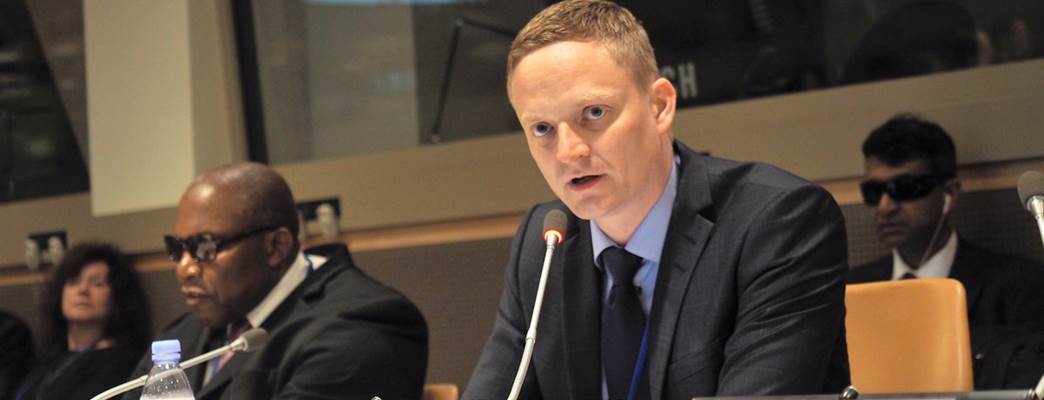Ladies and gentlemen,
Persons with disabilities are among the hardest hit by humanitarian crises. Yet, too often we fail to meet their needs in humanitarian responses.
Three out of four persons with disabilities affected by conflicts or disasters report that they do not have adequate access to basic assistance such as water, shelter, food or health.
Women and children are particularly vulnerable. Their movements during emergency situations are often curtailed, and children with disabilities face stigmatization from their peers.
We must ensure that the humanitarian system is capable of properly addressing the needs of persons with disabilities. They must be included throughout the program cycle, from planning and implementation to monitoring and reporting.
We need to apply non-discriminatory approaches, and we need to step up in many fields to deliver results in accordance with recent commitments in Istanbul and Sendai.
Take education: 37 million children in countries affected by crises and conflicts are out of school. Many are children with disabilities. The Sustainable Development Goal on access to education is closely related to the SDG on health, and cannot be met without addressing this challenge.
Norway has doubled development aid for education over the past three years. Children with disabilities is a crosscutting priority, and a focus area for many of our partners.
More needs to be done also within the field of humanitarian disarmament. Notably, we must reduce the number of persons affected by landmines and cluster munitions and make efforts to assist victims.
Norway plays an active role in international efforts to implement the Mine Ban Convention and the Convention on Cluster Munitions.
In terms of victim assistance, we support for instance ICRC’s orthopaedic centers in Afghanistan. These centers offer orthopaedic devices and physical rehabilitation services. They also help patients gain a role in society and recover their dignity and self-respect through education, vocational training and employment.
As one of the signatories of the Charter on Inclusion of Persons with Disabilities in Humanitarian Action, Norway will continue to promote the inclusion of persons with disabilities within humanitarian action. I would like to encourage all states to contribute in this regard.
Through the "Every Woman, Every Child, Everywhere" initiative, we should help to transform humanitarian responses and do our best to ensure that no one is left behind.
Thank you.
